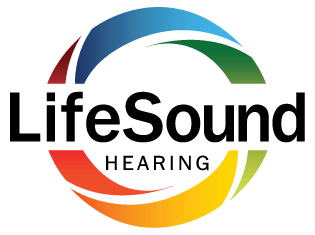The fall season is a standout time in the annual calendar. Imagine yourself sitting back and enjoying the sounds– kids laughing on Halloween, the leaves crunching as you walk, the fire crackling, and your family around the table at Thanksgiving. Now imagine that you can’t hear those things or that they are muffled.
Failing to hear these sounds can significantly diminish the festive atmosphere. The good thing is, many hearing issues are non permanent and can be resolved by addressing underlying causes that are often simple to correct or prevent. Take these actions to protect your hearing, and enjoy fall to its fullest.
How to safeguard your hearing
It is clear and undeniable that extended exposure to loud noises can cause non permanent hearing loss, and if the exposure goes on over time, it can develop into a lasting condition. Loud noises damage the sensitive parts of your inner ear, and you should do what you can to minimize the problem.
A sudden, extremely loud noise such as an explosion can trigger temporary hearing impairment, and although prompt medical intervention might reduce the impact, it is difficult to prevent. Lengthier exposure to sounds at 85 decibels or higher, though, can also cause hearing loss and is usually easier to avoid.
Heavy traffic comes in at 85 decibels, and sirens are measured at 120 decibels. Along with firecrackers and fireworks, loud music through earbuds can also pose a threat to your hearing. Be cautious when increasing the volume, as the closeness of the sound to your eardrum can result in damage. Unfortunately, there are no special allowances for indulging in your preferred song with earbuds or headphones.
Fall’s festivities typically include outdoor get-togethers and live music performances. The weather is still lovely, and you may find yourself in a park where you can spark up a grill and lay down a blanket. Exercise caution when sitting directly beside the speakers as you could be exposed to a powerful 140 decibels of sound. Concerts often reach unsafe decibel levels even at a significant distance.
So what should you do?
Safeguarding your hearing by wearing earplugs is one of the most helpful things you can do. By taking safety measures, you can decrease the danger of hearing damage while still being able to completely enjoy the music and fireworks show. As tempting as it is, try not to keep creeping closer to those speakers as the night goes on.
Keep your ears warm in cool temperatures
It is essential to protect your ears from infections as the temperature drops and the wind becomes more powerful. Make certain that you and your family have on ear protection like ear muffs or a hat. You may think of your children and grandchildren when you think of ear infections, but adults get them too. These infections cause fluid to accumulate in your middle ear, and they result in inflammation. You might experience fluid draining from your ear, pain, and hearing loss.
If you have an ear infection, you should consult a doctor right away. It might be an indication of another medical problem, and lack of treatment is dangerous not only for your hearing but also for your general health.
Carefully and effectively eliminate earwax
Earwax, in spite of being annoying, plays a crucial part in catching dirt, bugs, and debris to prevent them from reaching your inner ear. However, a surplus of earwax can become an issue, especially if it impedes your ability to hear effectively.
Prevention is essential to avoiding hearing problems caused by earwax. You may have spent many years utilizing a cotton swab or another tool to remove earwax, but it’s time to stop that method. Using cotton swabs can jam earwax deeper into your ear, possibly resulting in a buildup and impaired hearing.
Think about utilizing ear cleaning solutions, including hydrogen peroxide or over-the-counter ear drops, to carefully cleanse your ears. Let the drops sit for a few minutes, and then tilt your head to let them drain. Think about consulting an audiologist or hearing specialist if ear cleaning seems daunting or if you suspect a severe blockage. Special tools are available to them that will simplify the task.
Prescription or over-the-counter medicines might be to blame
A sudden decrease in your hearing abilities after starting a new prescription might be a side effect of the medication itself. Some antibiotics, diuretics, large doses of aspirin, and other drugs can lead to hearing problems. If you are concerned about this matter, contact your doctor right away to figure out whether you should continue using your medication.
Don’t forget, any changes in your hearing need to get assessed right away.
Contact a hearing care professional if you are noticing hearing loss this season.

